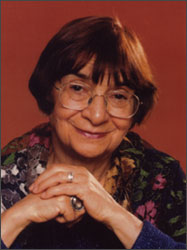

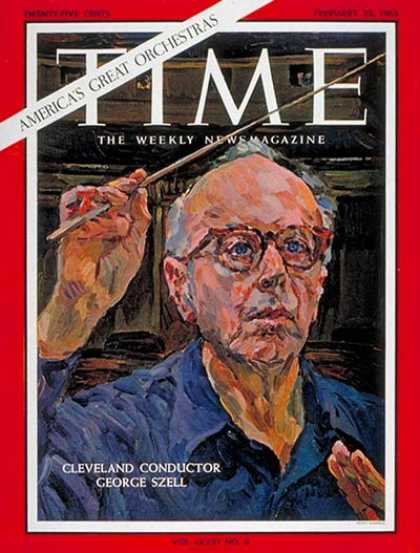 BD: What exactly did
you study with Szell? He was, of course, a conductor.
BD: What exactly did
you study with Szell? He was, of course, a conductor.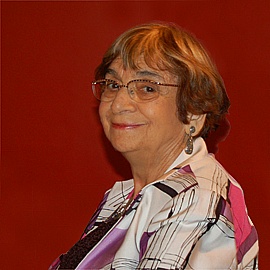 UM: I do,
yes. I am coming from what is
sometimes called the Middle European School, or the German School,
and from Schoenberg and Webern as the end of nineteenth century but
beginning of twentieth century
composers. I probably am a follower there, although my music
sounds quite different from Schoenberg’s music. And I’m passing
that on to the next
generation who will incorporate it with what they are hearing, and
other influences that they are coming across.
UM: I do,
yes. I am coming from what is
sometimes called the Middle European School, or the German School,
and from Schoenberg and Webern as the end of nineteenth century but
beginning of twentieth century
composers. I probably am a follower there, although my music
sounds quite different from Schoenberg’s music. And I’m passing
that on to the next
generation who will incorporate it with what they are hearing, and
other influences that they are coming across.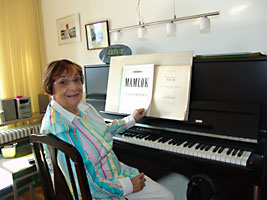 BD: Sure! So
my question is, how do you know when you’re finished?
BD: Sure! So
my question is, how do you know when you’re finished?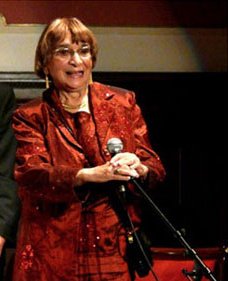 BD: Are they getting
more used to it?
BD: Are they getting
more used to it?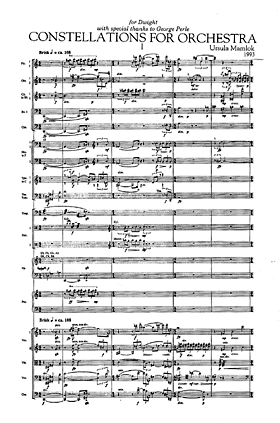 BD: How can we get
more
conductors, then, to champion this kind of thing?
BD: How can we get
more
conductors, then, to champion this kind of thing?Ursula Mamlok began her study of music in her native city of Berlin, and continued at the Mannes College of Music in New York with George Szell. She earned Bachelor of Music and Master of Music degrees from the Manhattan School of Music. She also studied with Roger Sessions, Ralph Shapey, and Stefan Wolpe. Among her numerous commissions are those from the Koussevitsky and Fromm Music Foundations, Alaria Chamber Ensemble, Eastman School of Music, Earplay and The San Francisco Symphony. She has received awards and grants from the National Endowment for the Arts, Meet the Composer, the Martha Baird Rockefeller Foundation, and, in 1995, a Fellowship from the Guggenheim Foundation. Her works are regularly performed by major domestic foreign ensembles and have been recorded by the CRI, Gasparo, Leonarda, Newport Classic, Music and Arts, Opus One, True Media, and Centaur labels, and are published by C.F. Peters Corporation, American Composers Edition, McGuinness and Marx, and Hildegard. In 1987, Ursula Mamlok received a Commendation of Excellence "for her contribution to the world of concert music" by BMI. She has been on the composition faculties of New York University, City University of New York, Temple University, and the Manhattan School of Music. She is also a board member of the League/ISCM. |
This interview was recorded on the telephone on July 25,
1996. Portions were used (along with recordings) on WNIB in
1998. The
transcription was made and posted on this
website in 2009.
To see a full list (with links) of interviews which have been transcribed and posted on this website, click here.
Award-winning broadcaster Bruce Duffie was with WNIB, Classical 97 in Chicago from 1975 until its final moment as a classical station in February of 2001. His interviews have also appeared in various magazines and journals since 1980, and he now continues his broadcast series on WNUR-FM, as well as on Contemporary Classical Internet Radio.
You are invited to visit his website for more information about his work, including selected transcripts of other interviews, plus a full list of his guests. He would also like to call your attention to the photos and information about his grandfather, who was a pioneer in the automotive field more than a century ago. You may also send him E-Mail with comments, questions and suggestions.